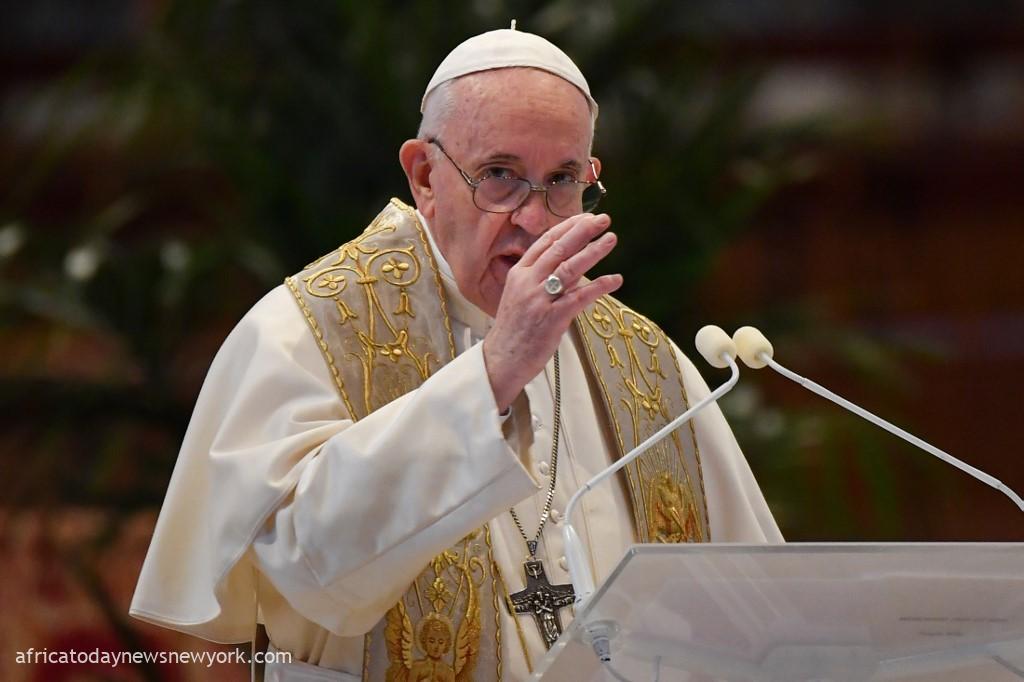The head of the Roman Catholic Church, Pope Francis, has asserted that those who criticise his decision to allow blessings for same-sex couples would eventually come to terms with it over time, except for Africans, whom he referred to as a “special case.”
Africa Today News, New York reports that Pope Francis had in an interview with Italian newspaper, La Stampa, on Tuesday, said Africans perceived homosexuality negatively from a cultural perspective.
“Those who protest vehemently belong to small ideological groups. A special case is Africans: for them, homosexuality is something bad from a cultural point of view, and they don’t tolerate it.
“But in general, I trust that gradually everyone will be reassured by the spirit of the ‘Fiducia Supplicans’ declaration by the Dicastery for the Doctrine of the Faith: it aims to include, not divide. He invites people to welcome and then entrust people, and entrust themselves, to God.”
When asked if he was concerned about a split in the church over the development, Francis replied in the negative, saying “in the church, there were small groups that manifested reflections of schismatic colour. You have to let them go and pass… and look ahead”.
Read Also: South Africans Rally Around ‘Genocide’ Case Against Israel
Speaking about his health challenges in recent years with hospitalisations, mobility issues, and cancelled trips becoming the order of his day, the 87-year-old said: “There are some aches and pains but it’s better now. I’m fine”.
Last month, a Vatican document, called Fiducia Supplicans (Supplicating Trust), which allowed blessings for same-sex couples, sparked widespread debate in the Catholic Church and around the world.
However, the Vatican made it clear that blessings should not be included in regular church ceremonies or linked to civil unions or weddings.
The Vatican emphasised that it continued to view marriage as between a man and a woman.
According to Reuters, last week, Francis seemed to recognise the resistance that the document generated, particularly in Africa, where in some countries, same-sex activity can result in severe consequences, such as imprisonment or even capital punishment.
He said that when the blessings were given, priests should “naturally take into account the context, the sensitivities, the places where one lives and the most appropriate ways to do it.”
The Catholic Bishops Conference of Nigeria, CBCN, had announced that Catholic churches within the country would not perform blessings for same-sex unions.
“That would go against God’s law, the teachings of the Church, the laws of our nation, and the cultural sensibilities of our people,” the CBCN said in a statement.
According to the bishops, there is a misinterpretation of Pope Francis’s decision to allow the blessing of same-sex marriage.

